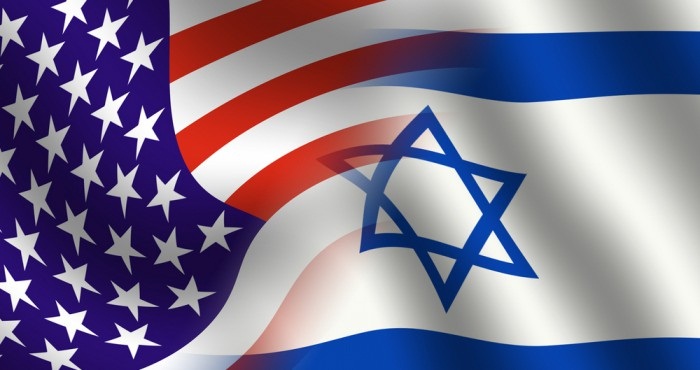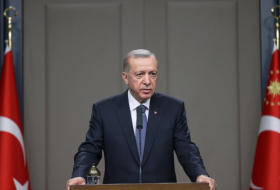It is not a secret that this geography encompasses Muslim states. In the geopolitics of the new millennium Islam factor has gained greater substance. Historically, Islamic ideology was employed as a political factor at the behest of the Western countries. Indeed, the West has never denied its involvement in the conception of the Wahhabi denomination, Taliban movement and Al-Qaida terrorist organization.
Regrettably, those placing notions of Islam and radicalism or even Islam and terror together fail to recall Western interventions. Nevertheless, historical facts attest that most radical Islamic organizations have enjoyed patronage of certain quarters of the West. Today, new radical religious movements established by the support of Western sponsors continue the geopolitical trend of Wahabbism, conceived under the British patronage in the past.
Abundance of information about the links of the Muslim Brotherhood, one of the key political actors in the ongoing Arab awakening, with the West adjourns the pages of the international printed press. However, it is tough to identify the role to be assumed by the Muslim Brotherhood in the event of plan "B” scenario of political developments.
Historic analogy reveals similarity between the role played by the Taliban during the campaign against Soviets in Afghanistan and the one played by the Salafis or the "Muslim Brotherhood” in the Arab awakening. There are no guarantees that those religious groups will not acquire the status of terrorists like Taliban did in the event of different developments in the Arab world and the Middle East.
Although events in the regional countries are developing owing to foreign intervention, they are not completely manageable. Processes are quite rapid, the objectives and achievements of foreign forces and domestic players differ mostly. The processes may backfire contrary to the interests of the West.
West and Islam – period of transformation
Serious transformation happens in the posture of the West with respect to Islam in the last century. Muslim colonies included into the Western imperial network prior to the WWII were on a later stage substituted by the regimes endorsed by the very West. Regimes consolidated in the hands of military served as a key springboard against the Soviets and its allies in the region. But a need for new relations has emerged in the wake of the dissolution of the Soviet Union. The process was more distinct in two various directions.
The first is an attitude towards the Islamic religious values and the Muslims in the Western society. In the wake of the collapse of the colonial system Western countries encouraged the migration policy that lead to the increase in the number of Muslims in Europe. Muslims started to penetrate the Western society and occupy a certain position within. Today, Muslim migrants are already citizens of France, UK, Germany and other European countries and endeavor to ensure equal rights for themselves in the Western society.
So far, the current trend among the ruling circles in Europe is to consolidate the migrants around the idea of Western values, neglecting their national and religious values. However, this policy is not paying off and leads to negative precedents as hijab issue in France and mosque minarets problem in Switzerland.
It is not incidental that today, the Western leaders announce the failure of the idea of multiculturalism introduced by very Western quarters. Thus, generations of Muslim migrants transforming into an integral component of the Western society and growing role and image of Islam in the West constitutes a characteristic feature of the first direction of the West – Islam relations. It must be added that the embracing of this reality is not easily digestible for the Western society that for centuries regarded bearers of the Islamic religion as enemies.
Second direction of the West – Islam relations is a changing role of Islam in the world order. It is already a reality that the countries of the Middle East, endowed with natural resources and strategic geographic location, can no longer be controlled by conventional methods. Being a geopolitical factor, Islam is also leaving its imprint upon the geopolitics. Under the circumstances, the West was compelled to turn its back on regimes it cooperated with for years, just to replace the military rulers with religious-political forces. Since this transformation is not easily imposed upon well-established military regimes the process is accompanied by the bloody "Arab awakening”.
Efforts are also made in the direction of counter-propaganda with respect to such distance-controlled processes as Islam and terror, Islamic radicalism aimed at affecting global public opinion. The reality and appearance on the surface are totally different. Illusion created by the Western media monopoly and the network of non-governmental organizations also plays its part. Therefore, in light of all the geopolitical trends, the Greater Middle East project is directed towards outlining new contours in the geography of countries of the Islamic world in the millennium.
Turkey-Syria relations within the Greater Middle East project
Developments in the region make the changes in the Greater Middle East imperative. Given the project being in the elaboration phase, making tactical changes for brisk reaction do not constitute a challenge. Therefore, new steps are undertaken on the Greater Middle East project to adequately respond to the protraction of the Syrian conflict and its changing nature (spilling into a civil war between opponents and proponents of the regime). In that sense, normalization of Turkey-Israel relations, Turkey acquiring new role in the Middle East peace process, Turkey`s peace talks with PKK terror organizations, PKK becoming active player in the Syrian war outline the contours of the Greater Middle East.
Protraction of the Syrian war entailed new tactical moves in the current phase. Therefore, two recent visits of the U.S. State Secretary John Kerry to Turkey and the start of the process of normalization of Turkey-Israel relations must not be viewed as incidental coincidence. Presumably, Turkey`s role in the region is boosted in exchange for obligations to be met by the country in the crucial phase of the Syrian conflict.
According to some experts, John Kerry invited Ankara to join Israel-Palestine peace talks (see:Aslı Aydıntaşbaş. Ortadoğuda barış için Türkiyeye davet. "Milliyet” newspaper, 8 April 2013). The article implies that Turkey-Israel relations are normalized in exchange for fullfiling certain Turkish demands. Turkey also gets closer engagement in the resolution of Israel-Palestine conflict.
Turkey-Iraq relations are also warming up. Iraqi PM Nuri Al-Maliki who once accused Turkey of interfering into domestic affairs of Iraq spoke to journalists on 5 April: "Iraq welcomes any step in the direction of rapprochement with Turkey in the spirit of common interests, mutual respect and neighborly relations”. Statement by Nuri Al-Maliki implies certain behind the scenes aspects of the political processes in the context of deterioration of relations between the two and traditional Sunni-Shia standoff.
On the other hand, demands for armed members of the PKK terror organization to abandon Turkey derive from current negotiations dubbed as "Kurdish opening” and are linked with events in Syria. It coincided with the first ever, since the conflict erupted, strikes by the B.Assad regime on Kurds inhabited settlement of Qamishli (Turkey border) and Kurdish neighborhoods of the city of Hallab. The PYD, Syrian wing of the PKK, thus joined the active military operations. Apparently, terrorist Kurdish groups are instructed to consolidate their military activity in one country and therefore attempting a heavily equipped passage into Syria.
So, the reality is that Turkey is a regional leader and forces struggling for clout in the region are obliged to reckon with that factor. But given that Turkey is one of the key targets of the Greater Middle East project, the present scenarios run counter to Turkey`s interests. Apparently, independent policy conducted by Turkey in the region is inconsistent with the interests of the superpowers. Therefore, Greater Middle East project entailed the rise of problems in all the countries in Turkey`s neighborhood.
Arastu Habibbeyli,
PhD in Economy
More about:
















































